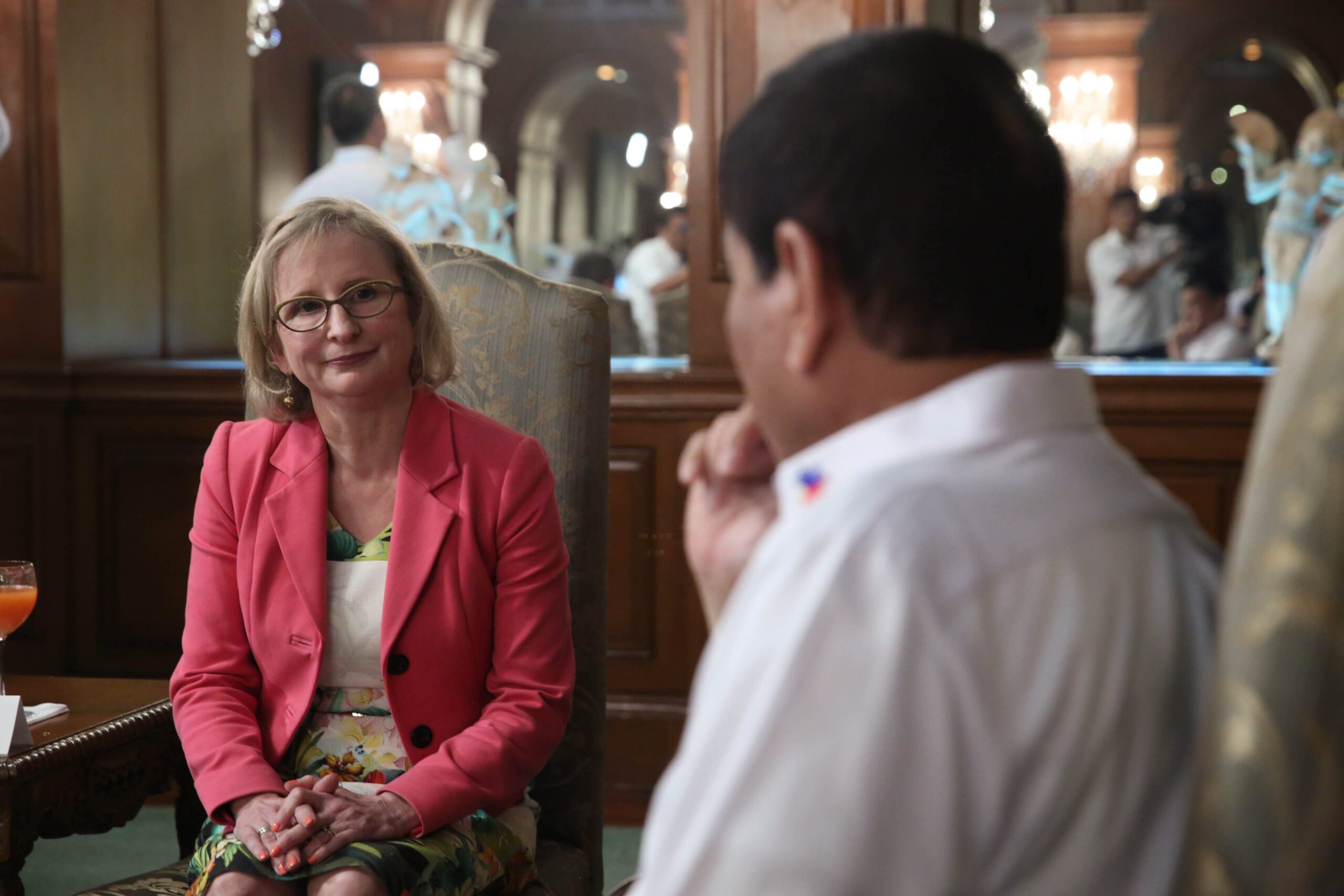SUMMARY
This is AI generated summarization, which may have errors. For context, always refer to the full article.

MANILA, Philippines – The United Kingdom and Australia stressed that the 2016 Hague ruling on the South China Sea is “binding” on both the Philippines and China, as sea disputes should be resolved “in accordance with international law.”
In a rare joint opinion piece, UK Ambassador to the Philippines Daniel Pruce and Australian Ambassador to the Philippines Amanda Gorely also said they “regret” that the Philippines is leaving the International Criminal Court (ICC).
The two ambassadors made these statements in an opinion piece published by The Philippine Star on Thursday, August 16, about the “importance of the rules-based international system.”
Experts say this rules-based system is being challenged by actions showing “might is right.” An example of this is China’s continued militarization of the South China Sea despite an international ruling that invalidated its expansive claim.
In their opinion piece, Pruce and Gorely said that without “strong and credible” rules from a rules-based system, “we would all be poorer and less secure.”
Part of this rules-based system is the United Nations Convention on the Law of the Sea (UNCLOS) and the Hague ruling of July 12, 2016, on the South China Sea, parts of which the Philippines claims as the West Philippine Sea.
“Australia and the UK take no position on sovereignty claims in the South China Sea. But we have concerns about tensions and are committed to maintaining a peaceful maritime order under international law. This includes UNCLOS and the 2016 decision in the Philippines-China arbitration, which is binding on the parties,” Pruce and Gorely said.
No to force, coercion
“We oppose impediments to the freedom of navigation and overflight. We urge against actions likely to raise tensions, including militarization. It is critical for regional stability, and for the integrity of the rules-based international system, that disputes in the region are resolved, not through force or coercion, but in accordance with international law,” they added.
CNN and the Associated Press earlier reported that China warned US and Philippine planes flying over the South China Sea. Even President Rodrigo Duterte, China’s ally, criticized China for its frequent warnings to planes and ships traversing the South China Sea.
On the ICC, Pruce and Gorely said it is “an institution we consider to be a cornerstone” of the rules-based international system. “We regret the Philippines has decided to leave.”
On trade, they rejected protectionism as they warned that “a trade war is possible, from which there will be no winners.”
“Some experts suggest the Philippines could be particularly hard hit. This is why we urge all countries to strengthen the existing system, reject protectionism, and embrace free and open markets,” they said.
“In the face of challenges, it is clear that strong rules are important for all nations, including the Philippines, Australia, and the UK. To protect our security and prosperity it is incumbent upon us collectively to defend the rules-based international order,” the ambassadors of the UK and Australia said. – Rappler.com
Add a comment
How does this make you feel?
There are no comments yet. Add your comment to start the conversation.